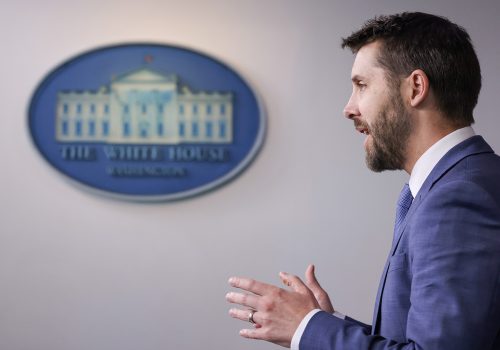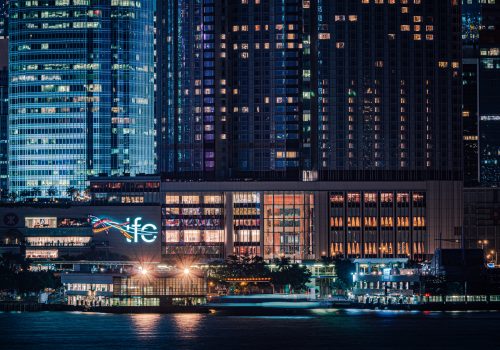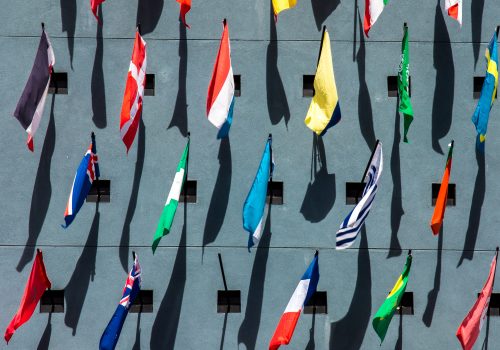We can more rapidly respond to future waves of COVID-19 and pandemics: Here is how
The biggest threat of biological pathogens is the protracted amount of time needed to characterize the pathogen, develop effective treatments, and perform biological remediation. The 2001 anthrax events, SARS and H1N1 outbreaks, and the current COVID-19 pandemic, demonstrate that these long processes cause worldwide human, social, and economic harm.
The world needs a global Pandemic Prevention Board focused on building an “Immune System for the Planet”, as described in early April by GeoTech Center Director Dr. David Bray and then highlighted in a CNBC article by Atlantic Council CEO Fred Kempe on why tech companies can — and should — build a global quick response system to prevent future pandemics.
Despite the current COVID-19 turbulence, we can get through this together. Here is how:

First, we must recognize faster global governance for pandemic prevention is essential. We need solutions that combine new ways of rapidly collaborating on pandemic preparedness alongside new technologies and advances in data to safeguard against future low probability, high consequence bio-related events. Technologies and capabilities of interest include standoff detection sensors that work with unknown pathogens, autonomous pathogen identification, a vaccine development process that is not defeated by virus mutations, and new methods for affordable, fast, worldwide distribution of pandemic remediation.

Second, we must mobilize a coalition skilled in understanding how new technologies transform how nations and industry sectors can collaborate on important issues — to include more rapidly responding to future waves of COVID-19 and future pandemics. Recent developments make this objective reachable. Data must be collected and shared on a global scale using trusted means, and be accessible by experts and decision-makers without undue restrictions.

Third, we must recognize that new technologies comprise perhaps only 20% of the solution. The greater challenge is fielding novel solutions such as “Data Trusts for Good” and other mechanisms that span sectors and nations while still benefiting individual organizations and communities. Governance activities are essential to a complete approach, and these must prepare the public, industry, and nations alike to detect, characterize, and respond to subsequent waves of COVID-19 and future pandemics more rapidly. Working with governments and local experts, new technologies and data capabilities would be fielded and tested, both as local and global prototypes. The global net result will be a dramatic reduction in the time it takes to characterize, develop treatments for, and remediate new natural and human-produced pathogens.
Ultimately, the world needs an “Immune System for the Planet” that can provide indicators, warnings, and plans to respond faster, better, and in a more global manner that saves lives and increases resilience to a range of bio-related events including pandemics around the world.
This work also will prepare the world for the rise in secondary, adverse, effects from the rapidly expanding field of biotechnologies to include the risk of terrorist or other bad actors who might consider future pathogens as a weapon against societies. Exponential changes in the field create distinct challenges that make representative democracies, republics, and other forms of representative government vulnerable to these threats. Societies must utilize technology and data to enable governance at the speed needed to defeat threats associated with pandemics.
In the future, the only way for open societies to navigate through a pandemic is by mobilizing both private sector and public sector leaders to work together on the long-term recovery. Here at the Atlantic Council GeoTech Center, we seek to embody a similar “learn by doing, adapting, and leading” model with the hope that leaders from all sectors and all nations, regardless of politics, will do the same to benefit people, prosperity, and peace as the world recovers.
Onwards and upwards together.
New technologies and data are tools. It is upon the choices we make, both as individuals and as communities, that ensure that they are used as a force for good in the world.


